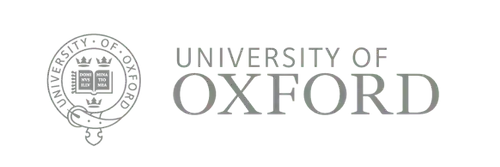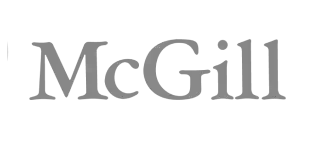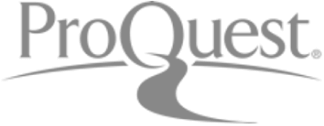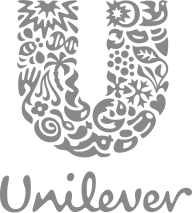Jamie Hughes, Ph.D.
Professor of Social Psychology at Fielding Graduate University
Research Expertise
About
Publications
False Alerts in Air Traffic Control Conflict Alerting System: Is There a “Cry Wolf” Effect?
Human Factors: The Journal of the Human Factors and Ergonomics Society / Aug 01, 2009
Wickens, C. D., Rice, S., Keller, D., Hutchins, S., Hughes, J., & Clayton, K. (2009). False Alerts in Air Traffic Control Conflict Alerting System: Is There a “Cry Wolf” Effect? Human Factors: The Journal of the Human Factors and Ergonomics Society, 51(4), 446–462. https://doi.org/10.1177/0018720809344720
Support for the domain specificity of implicit beliefs about persons, intelligence, and morality
Personality and Individual Differences / Nov 01, 2015
Hughes, J. S. (2015). Support for the domain specificity of implicit beliefs about persons, intelligence, and morality. Personality and Individual Differences, 86, 195–203. https://doi.org/10.1016/j.paid.2015.05.042
Reflecting on God's will: Reflective processing contributes to religious peoples' deontological dilemma responses
Journal of Experimental Social Psychology / Nov 01, 2018
McPhetres, J., Conway, P., Hughes, J. S., & Zuckerman, M. (2018). Reflecting on God’s will: Reflective processing contributes to religious peoples’ deontological dilemma responses. Journal of Experimental Social Psychology, 79, 301–314. https://doi.org/10.1016/j.jesp.2018.08.013
Testing the Death Thought Suppression and Rebound Hypothesis
Social Psychological and Personality Science / Jan 10, 2012
Trafimow, D., & Hughes, J. S. (2012). Testing the Death Thought Suppression and Rebound Hypothesis. Social Psychological and Personality Science, 3(5), 622–629. https://doi.org/10.1177/1948550611432938
The automated cockpit: A comparison of attitudes towards human and automated pilots
Transportation Research Part F: Traffic Psychology and Behaviour / Sep 01, 2009
Hughes, J. S., Rice, S., Trafimow, D., & Clayton, K. (2009). The automated cockpit: A comparison of attitudes towards human and automated pilots. Transportation Research Part F: Traffic Psychology and Behaviour, 12(5), 428–439. https://doi.org/10.1016/j.trf.2009.08.004
In a moral dilemma, choose the one you love: Impartial actors are seen as less moral than partial ones
British Journal of Social Psychology / May 04, 2017
Hughes, J. S. (2017). In a moral dilemma, choose the one you love: Impartial actors are seen as less moral than partial ones. British Journal of Social Psychology, 56(3), 561–577. Portico. https://doi.org/10.1111/bjso.12199
Stress and Coping Activity
Teaching of Psychology / Jan 01, 2011
Hughes, J. S., Gourley, M. K., Madson, L., & Blanc, K. L. (2011). Stress and Coping Activity. Teaching of Psychology, 38(1), 36–39. https://doi.org/10.1177/0098628310390852
Inferences about character and motive influence intentionality attributions about side effects
British Journal of Social Psychology / May 25, 2011
Hughes, J. S., & Trafimow, D. (2011). Inferences about character and motive influence intentionality attributions about side effects. British Journal of Social Psychology, 51(4), 661–673. https://doi.org/10.1111/j.2044-8309.2011.02031.x
Mind attributions about moral actors: Intentionality is greater given coherent cues
British Journal of Social Psychology / Jun 26, 2014
Hughes, J. S., & Trafimow, D. (2014). Mind attributions about moral actors: Intentionality is greater given coherent cues. British Journal of Social Psychology, 54(2), 220–235. Portico. https://doi.org/10.1111/bjso.12077
Automation Dependency and Performance Gains under Time Pressure
Proceedings of the Human Factors and Ergonomics Society Annual Meeting / Sep 01, 2008
Rice, S., Hughes, J., McCarley, J. S., & Keller, D. (2008). Automation Dependency and Performance Gains under Time Pressure. Proceedings of the Human Factors and Ergonomics Society Annual Meeting, 52(19), 1326–1329. https://doi.org/10.1177/154193120805201905
Psychology teachers should try team-based learning: Evidence, concerns, and recommendations.
Scholarship of Teaching and Learning in Psychology / Mar 01, 2020
Madson, L., Zaikman, Y., & Hughes, J. S. (2020). Psychology teachers should try team-based learning: Evidence, concerns, and recommendations. Scholarship of Teaching and Learning in Psychology, 6(1), 53–68. https://doi.org/10.1037/stl0000166
Attributions About Morally Unreliable Characters: Relationship Closeness Affects Moral Judgments
Basic and Applied Social Psychology / Jul 03, 2016
Hughes, J., Creech, J. L., & Strosser, G. L. (2016). Attributions About Morally Unreliable Characters: Relationship Closeness Affects Moral Judgments. Basic and Applied Social Psychology, 38(4), 173–184. https://doi.org/10.1080/01973533.2016.1198979
Intentionality Attributions About Perfect and Imperfect Duty Violations
The Journal of Social Psychology / Feb 26, 2010
Hughes, J. S., & Trafimow, D. (2010). Intentionality Attributions About Perfect and Imperfect Duty Violations. The Journal of Social Psychology, 150(2), 198–210. https://doi.org/10.1080/00224540903365513
Adolescent’s Perceptions of Sexual Relationships Between Students and Teachers
Journal of Child Sexual Abuse / Aug 06, 2018
Hernandez, F., McPhetres, J., & Hughes, J. (2018). Adolescent’s Perceptions of Sexual Relationships Between Students and Teachers. Journal of Child Sexual Abuse, 28(1), 67–83. https://doi.org/10.1080/10538712.2018.1505795
The effects of private and collective self‐priming on visual search: Taking advantage of organized contextual stimuli
British Journal of Social Psychology / Sep 01, 2009
Rice, S., Clayton, K. D., Trafimow, D., Keller, D., & Hughes, J. (2009). The effects of private and collective self‐priming on visual search: Taking advantage of organized contextual stimuli. British Journal of Social Psychology, 48(3), 467–486. Portico. https://doi.org/10.1348/014466608x354580
Beliefs about an Offender’s Capacity to Be Rehabilitated: Black Offenders Are Seen as More Capable of Change
Basic and Applied Social Psychology / Oct 04, 2021
Hughes, J. S., Sandel, A., Yelderman, L. A., & Inman, V. (2021). Beliefs about an Offender’s Capacity to Be Rehabilitated: Black Offenders Are Seen as More Capable of Change. Basic and Applied Social Psychology, 43(6), 406–422. https://doi.org/10.1080/01973533.2021.1982714
Sentencing recommendations are insensitive to juvenile offender’s age and maturation
Cogent Social Sciences / Jun 16, 2016
McPhetres, J., & Hughes, J. (2016). Sentencing recommendations are insensitive to juvenile offender’s age and maturation. Cogent Social Sciences, 2(1), 1194714. https://doi.org/10.1080/23311886.2016.1194714
The Influence of Psychosocial Immaturity, Age, and Mental State Beliefs on Culpability Judgments About Juvenile Offenders
Criminal Justice and Behavior / Jul 09, 2016
Hughes, J. S., & Mcphetres, J. (2016). The Influence of Psychosocial Immaturity, Age, and Mental State Beliefs on Culpability Judgments About Juvenile Offenders. Criminal Justice and Behavior, 43(11), 1541–1557. https://doi.org/10.1177/0093854816655377
Intentional Inferences Are Not More Likely Than Unintentional Ones: Some Evidence Against the Intentionality Bias Hypothesis
The Journal of Social Psychology / Jan 01, 2012
Hughes, J. S., Sandry, J., & Trafimow, D. (2012). Intentional Inferences Are Not More Likely Than Unintentional Ones: Some Evidence Against the Intentionality Bias Hypothesis. The Journal of Social Psychology, 152(1), 1–4. https://doi.org/10.1080/00224545.2011.565383
Introducing the Date and Acquaintance Rape Avoidance Scale
Violence and Victims / Jan 01, 2016
Resendez, J. R., & Hughes, J. S. (2016). Introducing the Date and Acquaintance Rape Avoidance Scale. Violence and Victims, 31(4), 664–679. https://doi.org/10.1891/0886-6708.vv-d-14-00086r2
The potentially conflicted evaluations of others based on their intelligence
Personality and Individual Differences / Jan 01, 2021
Jonason, P. K., & Hughes, J. (2021). The potentially conflicted evaluations of others based on their intelligence. Personality and Individual Differences, 168, 110299. https://doi.org/10.1016/j.paid.2020.110299
Using Adolescent Perceptions of Misconduct to Help Educational Leaders Identify and Respond to Sexual Misconduct
Educational Administration Quarterly / Nov 02, 2020
Hernandez, F., McPhetres, J., & Hughes, J. (2020). Using Adolescent Perceptions of Misconduct to Help Educational Leaders Identify and Respond to Sexual Misconduct. Educational Administration Quarterly, 57(4), 507–535. https://doi.org/10.1177/0013161x20963719
The Government Receives Moral License to Commit Transgressions When Compared to Other Entities
Basic and Applied Social Psychology / Nov 27, 2019
Hughes, J. S., Harpster, R. D., & Gonzales, N. C. (2019). The Government Receives Moral License to Commit Transgressions When Compared to Other Entities. Basic and Applied Social Psychology, 42(2), 98–114. https://doi.org/10.1080/01973533.2019.1695616
False alerts in the ATC conflict alert system: Is there a "cry wolf" effect?
PsycEXTRA Dataset / Jan 01, 2009
Wickens, C. D., Hutchins, S., Rice, S., Keller, D., & Hughes, J. (2009). False alerts in the ATC conflict alert system: Is there a “cry wolf” effect? PsycEXTRA Dataset. https://doi.org/10.1037/e578352012-019
When Cooperation and Compromise Fail: Distrusting and Denigrating the Moral Character of Those Who Disagree
Analyses of Social Issues and Public Policy / Feb 24, 2017
Hughes, J. S. (2017). When Cooperation and Compromise Fail: Distrusting and Denigrating the Moral Character of Those Who Disagree. Analyses of Social Issues and Public Policy, 17(1), 132–160. Portico. https://doi.org/10.1111/asap.12131
Using Drugs or Non-Drugs Alternatives to Alter Mental States in the Online, Virtual Era
Substance Use & Misuse / Jun 07, 2023
Mouton, C., Hughes, J. S., & Olson, J. N. (2023). Using Drugs or Non-Drugs Alternatives to Alter Mental States in the Online, Virtual Era. Substance Use & Misuse, 58(11), 1324–1332. https://doi.org/10.1080/10826084.2023.2201938
False alerts in the ATC conflict alert system: Is there a “cry wolf” effect?
Proceedings of the Human Factors and Ergonomics Society Annual Meeting / Oct 01, 2009
Wickens, C. D., Hutchins, S., Rice, S., Keller, D., & Hughes, J. (2009). False alerts in the ATC conflict alert system: Is there a “cry wolf” effect? Proceedings of the Human Factors and Ergonomics Society Annual Meeting, 53(1), 91–95. https://doi.org/10.1177/154193120905300120
Education
New Mexico State University
Ph.D., Psychology / May, 2010
Experience
Fielding Graduate University
Professor / August, 2023 — Present
The University of Texas Permian Basin
Professor / August, 2012 — August, 2023
Join Jamie on NotedSource!
Join Now
At NotedSource, we believe that professors, post-docs, scientists and other researchers have deep, untapped knowledge and expertise that can be leveraged to drive innovation within companies. NotedSource is committed to bridging the gap between academia and industry by providing a platform for collaboration with industry and networking with other researchers.
For industry, NotedSource identifies the right academic experts in 24 hours to help organizations build and grow. With a platform of thousands of knowledgeable PhDs, scientists, and industry experts, NotedSource makes connecting and collaborating easy.
For academic researchers such as professors, post-docs, and Ph.D.s, NotedSource provides tools to discover and connect to your colleagues with messaging and news feeds, in addition to the opportunity to be paid for your collaboration with vetted partners.
Expert Institutions





Proudly trusted by





